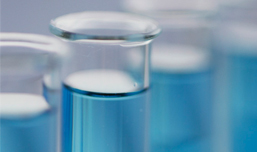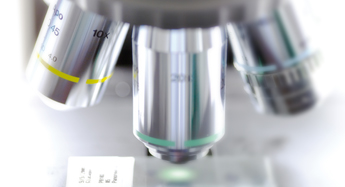Not all Bolar exemptions are the same - an update
September 2014
Background
The 'regulatory review' defence, better known as the 'Bolar exemption' after a similar provision in US law, first came into force in October 2005. Its purpose was to address uncertainty about the scope of application of the experimental use exemption to patent infringement. The uncertainty surrounding the exemption particularly focussed on whether applicants conducting the necessary bioequivalence and stability studies for generic marketing authorisations, under the abridged procedure, could be liable for patent infringement.
The Bolar exemption is set out in Article 10(6) of Directive 2001/83/EC (as amended) (the "Directive"):
10(6) Conducting the necessary studies and trials with a view to the application of paragraphs 1, 2, 3 and 4 and the consequential practical requirements shall not be regarded as contrary to patent rights or to supplementary protection certificates for medicinal products.
This provision of Directive 2001/83/EC refers to the abridged application procedure for marketing authorisations available to applicants for generic medicines. It does not clarify issues such as, what it means by "trials".  Therefore, despite its intention, and although Directives are intended to harmonise European law, widely diverging implementation of the Bolar exemption between Member States has created its own uncertainty; particularly as regards its application to clinical trials conducted by innovators.
Therefore, despite its intention, and although Directives are intended to harmonise European law, widely diverging implementation of the Bolar exemption between Member States has created its own uncertainty; particularly as regards its application to clinical trials conducted by innovators.
This article compares the implementation of the Bolar exemption in the national laws of Germany and other European countries and looks ahead to the amendments to the UK experimental use exemption that will come into force in the UK on 1 October 2014.
Germany
There are a number of exceptions to patent infringement which are not all special to pharmaceuticals. For example, under section 11 German Patent Act (GPA) the effects of a patent do not extend to activities done in the private domain for non-commercial purposes, individual preparations of a medicine in pharmacies or for experimental purposes only.
Section 11 Nr. 2 GPA states:
"The effects of the patent shall not extend to acts done for experimental purposes relating to the subject matter of the patented invention".
What constitutes an experimental purpose has already been at issue in the German Supreme Court. In principle, an experimental purpose is given if the infringing act only serves the purpose of acquiring new knowledge about the patented subject matter. According to the German Supreme Court it is not required that the experiments serve exclusively scientific purposes. Also, commercial activities are exempted, for example: if a patented substance has been used to find out whether, and in which form, the patented substance can be used to cure other diseases, clinical experiments designed to acquire new knowledge for a pharmaceutical application, and activities which seek to destroy uncertainty about the effect and the tolerance of a patented substance, are considered to fall within "experimental purposes". Research tools are not exempted since they are tools for research and not subject to research.
The Bolar exemption was implemented in Germany in 2005 in section 11 Nr. 2 b GPA, which reads as follows:
"The effects of the patent shall not extend to studies and trials and the resulting practical requirements necessary for obtaining a marketing authorization to place a medicinal product on the market in the European Union or marketing approval for a medicinal product in the Member States of the European Union or in third countries."
 This implementation of the Bolar exemption in Germany is more generous than the current implementation in the UK (see below). The provision does not distinguish between marketing authorisations for generic and innovative drugs and applies regardless of whether these authorisations are obtained in Europe or elsewhere.
This implementation of the Bolar exemption in Germany is more generous than the current implementation in the UK (see below). The provision does not distinguish between marketing authorisations for generic and innovative drugs and applies regardless of whether these authorisations are obtained in Europe or elsewhere.
The provision covers studies and trials and the resulting practical requirements, such as the making, the import, the possession and the use of patent protected substances if and insofar as necessary for obtaining a marketing approval in a certain jurisdiction.
Other European countries
Other European countries have also implemented the Bolar exemption in terms broad enough to cover innovator drugs and generics. For example, in 2005, Austrian legislation introduced the Bolar exemption into the Patent Act, to the effect that patent protection does not extend to studies and trials, as well as to the consequential practical requirements, as far as they:
"are necessary for obtaining a permission, authorization or registration for putting pharmaceutical products on the market."
In France, the Bolar exemption was added as a defence to patent infringement in the French Intellectual Property Code Art L613-5(d). This is broad in scope; applying to work conducted for authorisations of generic and novel drugs:
"studies and trials required in view of obtaining a marketing authorisation for a drug, as well as acts necessary to the performance thereof and to the obtaining of the authorisation."
Similarly, in Italy the Code of Industrial Property Art 68(1)(a) exempts from infringement work performed on generic and novel drugs for the purpose of gaining authorisation in any country:
"acts performed privately and for non-commercial purposes, or for commercial purposes, even if aimed at obtaining an authorisation to market a medicinal product in any country, and subsequent practical requirements, including the preparation and the use of the active pharmaceutical ingredients if they are absolutely necessary."
However, in contrast, the Netherlands has taken a narrow approach to the Bolar exemption which is closer to that currently implemented in the UK. The Dutch Patent Act 1995, Art 53(4) exempts from infringement:
"performance of necessary studies, tests and experiments carried out in connection with the application of Article 10(1) to (4) of Directive 2001/83/EC or Article 13(1) to (5) of Directive 2001/82/EC and the ensuing practical requirements shall not be deemed to constitute an infringement of patents relating to medicinal products for human use or medicinal products for veterinary use, respectively."
 The UK
The UK
The Bolar exemption in the UK was implemented merely by reference to the text of Article 10(6) of the Directive. The scope of this exemption in the UK is best understood by reference to the UK Intellectual Property Office (UKIPO) and Medicines and Healthcare products Regulatory Agency (MHRA) practice note on the subject, which considers the following activities to fall within it:
- The carrying out of chemical and biological synthetic processes suitable for the making, disposal or keeping of the active substance(s) including the manufacture or the import of batches in quantities sufficient to provide material for preparing investigative batches of the medicinal product and to validate the processes to the satisfaction of the competent authorities.
- The development, testing and use of the associated analytical techniques for the above.
- The development of the final pharmaceutical composition and manufacturing processes for the medicinal product to be marketed including the making, disposal or keeping or import of product batches in quantities sufficient to conduct the necessary pre-clinical tests, clinical and bioavailability trials and stability studies of the medicinal product and to validate the processes to the satisfaction of the competent authorities.
- The development, testing and use of the associated analytical techniques for the above.
- The manufacture and supply to the competent authorities of samples of active substances, their precursors, intermediates or impurities and of finished product samples.
- The compilation and submission of an MA or Variation application and application for an MA.
Whilst point 3 expressly includes "trials" as activities covered by the exemption, it has long been the view that this is restricted to those studies (such as bioequivalence studies and stability testing) that are necessary to allow a generic applicant to use the abridged authorisation procedure only.
 This view was confirmed when, towards the end of 2012, the UKIPO consulted on whether the Patents Act should be changed to include an exemption from patent infringement for activities involved in preparing or running clinical or field trials which use innovative drugs. The responses to the consultation were overwhelmingly in favour of such an exemption, for reasons including that the changes would bring the UK into alignment with other EU countries. The UKIPO therefore decided to seek such an amendment, to make it clear that the exemption from infringement applies to the activities of preparing or running clinical or field trials involving innovative drugs for the purpose of gaining regulatory approval in any country. However, rather than being made to the Bolar exemption itself, these amendments have actually been made to the experimental use provisions of section 60 of the UK Patents Act 1977, arguably leaving the former redundant. The changes are in force from 1 October 2014.
This view was confirmed when, towards the end of 2012, the UKIPO consulted on whether the Patents Act should be changed to include an exemption from patent infringement for activities involved in preparing or running clinical or field trials which use innovative drugs. The responses to the consultation were overwhelmingly in favour of such an exemption, for reasons including that the changes would bring the UK into alignment with other EU countries. The UKIPO therefore decided to seek such an amendment, to make it clear that the exemption from infringement applies to the activities of preparing or running clinical or field trials involving innovative drugs for the purpose of gaining regulatory approval in any country. However, rather than being made to the Bolar exemption itself, these amendments have actually been made to the experimental use provisions of section 60 of the UK Patents Act 1977, arguably leaving the former redundant. The changes are in force from 1 October 2014.
Under the amended exemption, for an activity to fall within the protection of the new exemption it must be conducted for the purposes of a "medicinal product assessment" for human or veterinary use. This is defined as any testing, course of testing or other activity undertaken with a view to providing data for one of the following purposes:
- obtaining or varying an authorisation to sell or supply, or offer to sell or supply, a medicinal product (whether in the United Kingdom or elsewhere);
- complying with any regulatory requirement imposed (whether in the United Kingdom or elsewhere) in relation to such an authorisation
- enabling a government or public authority (whether in the United Kingdom or elsewhere), or a person (whether in the United Kingdom or elsewhere) with functions of:
- providing health care on behalf of such a government or public authority, or
- providing advice to, or on behalf of, such a government or public authority about the provision of health care, to carry out an assessment of suitability of a medicinal product for human use for the purpose of determining whether to use it, or recommend its use, in the provision of health care.
 The amendment is expected to have broad benefits for the UK, by facilitating the conduct of more clinical trials there with the associated economic benefits. At an EU level, the new exemption in the UK will also bring it into line with Germany, whose Bolar exemption is widely regarded to be the gold standard in Europe. This also brings the harmonisation and certainty, which the exemption was originally intended to introduce, a step closer. However, there is some way to go before the Bolar exemption is applied equally in all EU countries. The advent of the UPC is expected to bring further challenges to the interpretation of this feature of the European patent law.
The amendment is expected to have broad benefits for the UK, by facilitating the conduct of more clinical trials there with the associated economic benefits. At an EU level, the new exemption in the UK will also bring it into line with Germany, whose Bolar exemption is widely regarded to be the gold standard in Europe. This also brings the harmonisation and certainty, which the exemption was originally intended to introduce, a step closer. However, there is some way to go before the Bolar exemption is applied equally in all EU countries. The advent of the UPC is expected to bring further challenges to the interpretation of this feature of the European patent law.
If you have any questions on this article or would like to propose a subject to be addressed by Synapse please contact us.


Christoph de
Coster
Christoph is a partner and Head of Patents (Germany) based in our Munich office.

Paul England
Paul is a senior associate and professional support lawyer in the Patents group based in our London office.
"Although Directives are intended to harmonise European law, widely diverging implementation of the Bolar exemption between Member States has created its own uncertainty."
"At an EU level, the new exemption in the UK will also bring it into line with Germany, whose Bolar exemption is widely regarded to be the gold standard in Europe."

